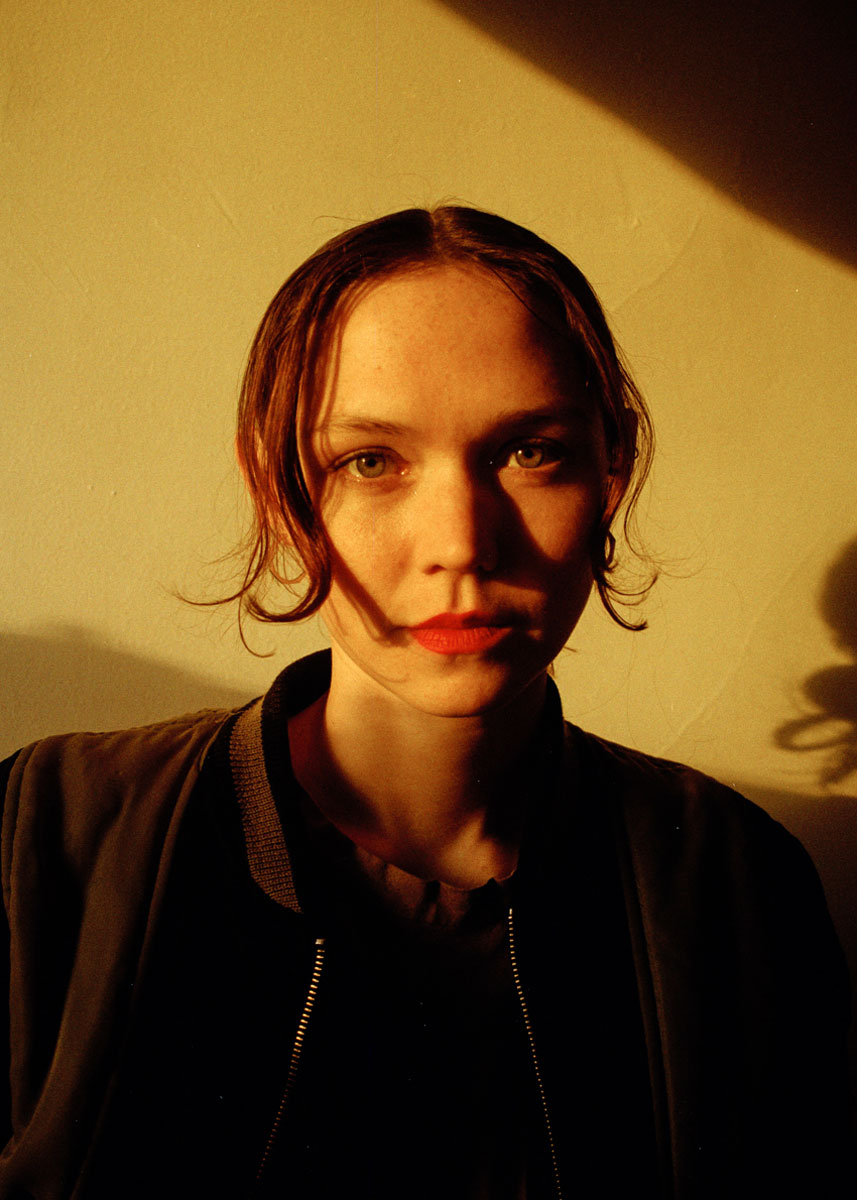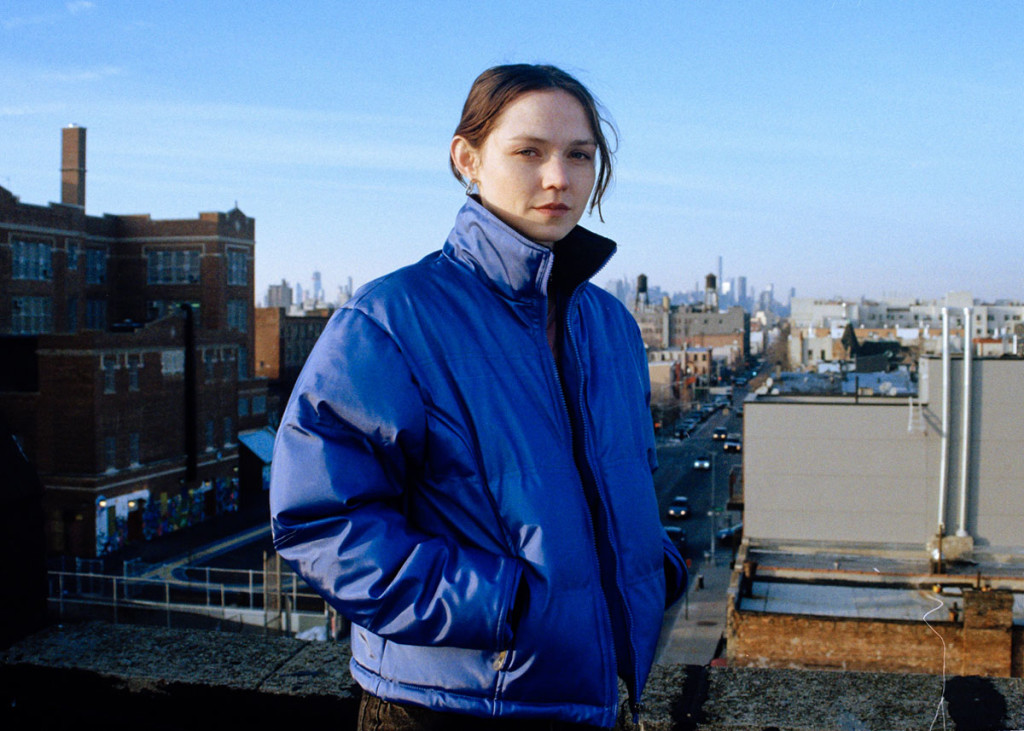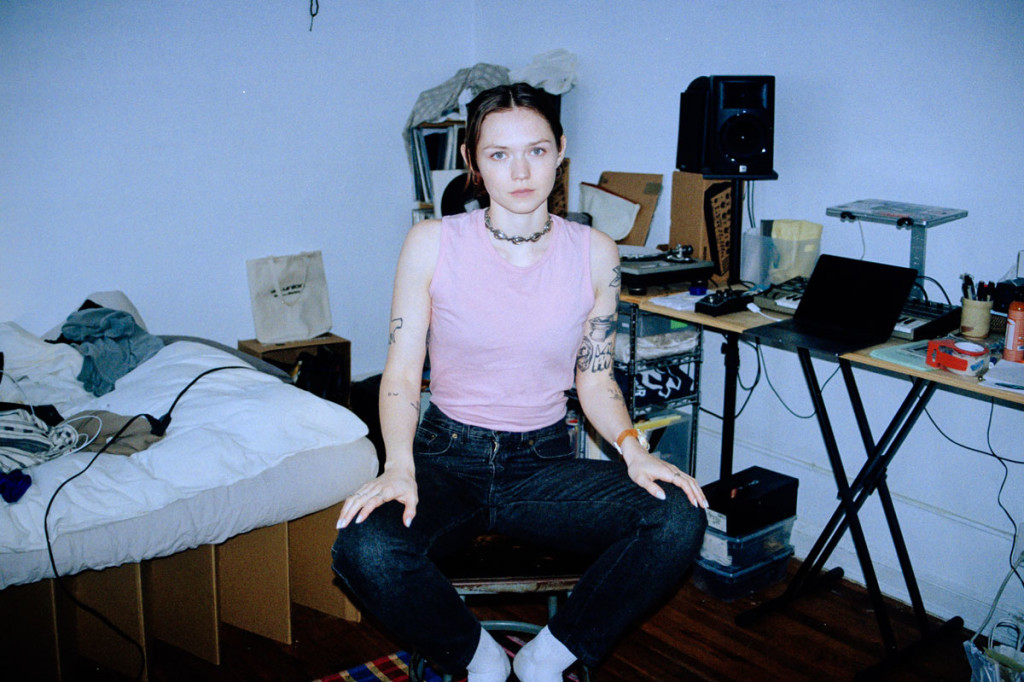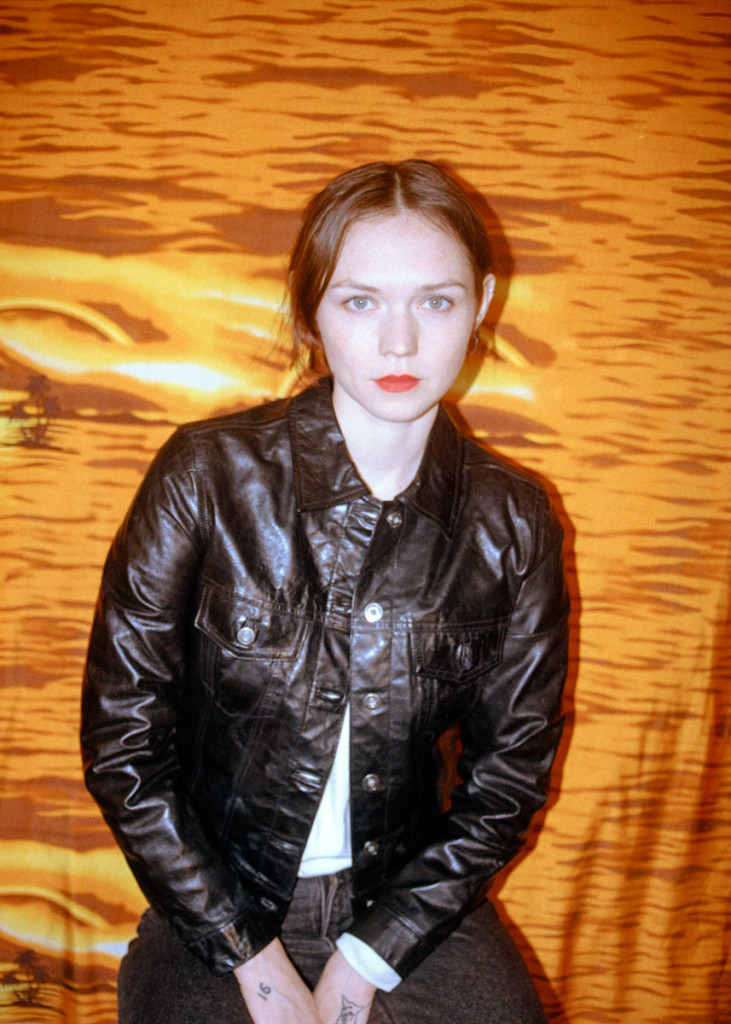Ahead of her Rewire performance, the producer talks silence, gear, Discwoman and Technofeminism.

Talking to Emma Olson, the artist better known as Umfang, is as inspiring as it is to see her perform. A sound built on a refreshingly minimal approach to gear, her music delves deep into darkness and light, silence and intensity, bringing into being sets of outstanding originality. As co-founder of Discwoman and later, Technofeminism, Umfang’s force does not end with the closing kick of her set, with the artist and her fellow Discwomen turning the conversation on gender and feminism within electronic music into action. In anticipation of her performance at Rewire Festival tonight, we were thrilled to sit down together and talk all things techno.

The use of space between sound is a striking quality in your music. How important do you see silence in the overall outcome of a set?
I guess it’s not terribly intentional but it’s easier for me to break down the sounds when there’s not a lot going on. I mean, I like minimal music in general because you can trace each piece easily and I don’t know… it just seems calming to me to have things simplified and I feel if there are moments of silence it creates a lot of excitement, even in DJ-sets when people take the music all the way out, then back up—it creates so much excitement.
Symbolic Use of Light delves into the use of light and dark textures. Can there be light without dark or do we need the dark to appreciate the light?
No. Very mutually dependent, it’s like yin and yang. Symbolic Use of Light specifically is about the film Rashomon and the way the light exposes crimes so it’s playing with this idea that darkness might seem good but everything is hidden. Then when the light comes out, it exposes the crime and the bad things that are happening. So it’s sort of talking about that and the reversal of the idea of good being light and bad being dark, which is a really important thing to talk about.

How did the film weave itself into the final product?
That’s just where I derived those ideas and found the way to verbally express those ideas. Rashomon was the poetic connection for me to find track titles and narrate the music… it was the source of the language for the music but it’s not necessarily that the whole album was about that film, it was just a really good way to tie in the themes I was thinking of.
As a co-founder of Discwoman, you work with venues across the globe to bring representative line-ups to electronic music. Have you seen much positive change in the past couple of years?
A lot, and I think the most meaningful is that through the internet and social media we’ve met so many crews of women doing things around the world. It’s exciting how everything has become more exposed so now we know about people we didn’t know about before because of the project. Also, the dialogue has changed in terms of accountability within festivals and individual promoters. I feel that it really wasn’t talked about much at all in the public eye and now it’s almost overwhelmingly talked about on the internet, which is positive.
About a month ago, Amsterdam hosted Boiler Room—an important night because it featured purely female DJs, run by an all-women staff and technical crew. How does the energy compare between a male-dominated line-up and a more inclusive or all-female one?
I feel like it’s still pretty rare to have that in most people’s experiences. Everyone always notices and a weight is lifted from the usual potential worries about bullshit. I played a show this week where the lighting tech were women and the opening DJs were women, and there’s something relaxing about having an understanding that you’re going to be able to communicate in a way that doesn’t lead you to feel belittled or challenged. It’s just really comforting—I feel I can relax in those situations where I normally feel in a way that I have to uphold my space and guard myself as I’m surrounded by male promoters and male tech. So I think it feels almost like a celebration; it’s not so common and that’s something I really enjoy—like, I can relax a little bit.

Technofeminism aims to book DJs who haven’t had much exposure or for whom it’s their first time playing a gig. How is the support network for young musicians entering into electronic music and techno specifically?
I think that people can choose to have a really significant role within that process. One or two people can really make a young artist feel like they are able to do something. For me there was one key promoter in NYC that took an interest in booking me and took a chance on booking me, and let me have a night at the club that he opened. I don’t know if I would have had the same access to that community or the confidence to keep going had that one person not nurtured me and my experience. So I just try and be as positive with younger people as possible and not just blindingly encouraging. If things don’t work out for them that’s not really up to me, but I’m not going to do any damage by trying to lift somebody up at the beginning. If there is something there, then they’ll have a higher chance of getting there.
So back to that first Discwoman festival at Bossa Nova—how was that first time and how was the response?
The Discwoman party at Bossa Nova was in 2014 and it was two days in a row, festival-style with programming from the evening to the night. It was hugely successful; we got a lot of press from that event and a lot of positive feedback from the people that played. It was a really empowering experience for everyone involved, I think, and something that we hadn’t really seen done before. Something that actually came together even in a scene as vast as New York City.
Back to you personally: as a young artist, how did you originally discover your signature sound?
It just happens over time. I think the more you work on music production and DJing—if you’re honest about what you can relate to then you end up with a signature sound. Exploring themes over and over again you begin to see patterns of what you like and what you dislike, and then that creates a signature sound.
Did your minimal approach to gear affect this at all?
I guess the more pieces you add on, the more complex your compositions become. Occasionally I may have a situation where I would like another element to be there, but I’m not quite sure how to add it because I only have one machine or something. But then I feel like it makes me explore things in a different way that’s a little more stripped back, and I think it’s very exciting when you get a really intense effect only having two channels of sound going on. If I need variety from that, I have a few other machines I can use; Moog sponsored some of us in Discwoman so now I have another bit of gear to play with. So yeah, I’m just interested in machines where you can get enough happening within that machine to keep it simple and maybe add one other element or something.
But you swear by the BOSS DR-202?
I mean, that’s my most significant relationship with gear but I’m also really excited about the Moog DFAM, I want to play with that when I get back home. The DR-202 just really made sense for me—what I was looking for the whole time, really.
What’s your one piece of advice for a young musician entering the electronic scene?
To not be too concerned with all of the media you’re exposed to but just focus on studio practice and really protecting that time. I think that everything in our society is trying to get us really distracted and make us feel really insecure, so it’s actually a really definite act to close yourself off from that and just work on your creative process. Don’t worry about Instagram; worry about your own studio practice.
Follow Umfang on Soundcloud and Instagram
Rewire 2018
April 6 – 8, The Hague (NL)
Get your tickets here!
Words by Louise Goodger
Photography by Tyler Jones
Notifications